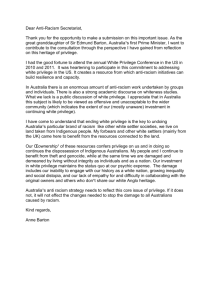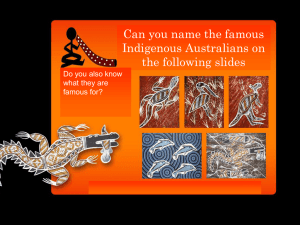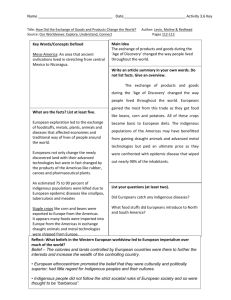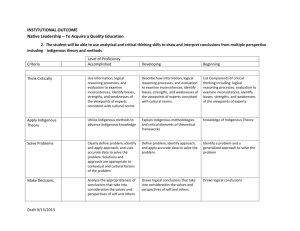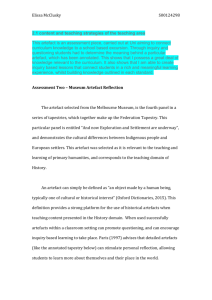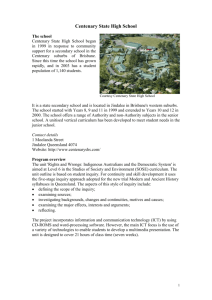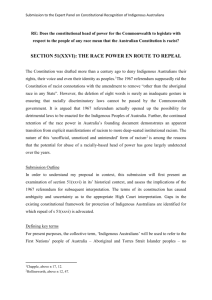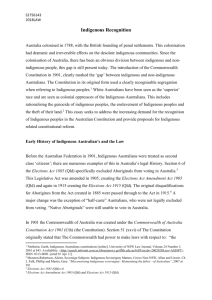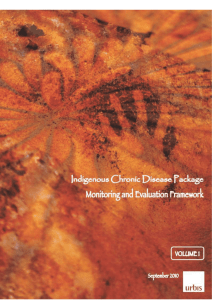Reflective Journal
advertisement
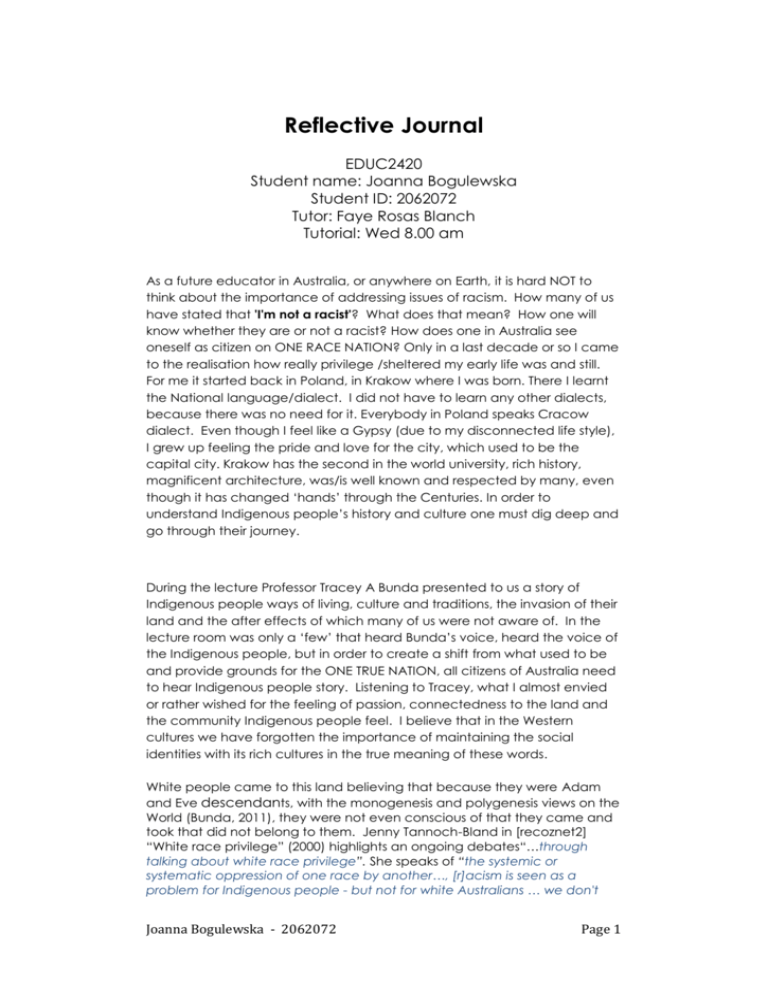
Reflective Journal EDUC2420 Student name: Joanna Bogulewska Student ID: 2062072 Tutor: Faye Rosas Blanch Tutorial: Wed 8.00 am As a future educator in Australia, or anywhere on Earth, it is hard NOT to think about the importance of addressing issues of racism. How many of us have stated that 'I'm not a racist'? What does that mean? How one will know whether they are or not a racist? How does one in Australia see oneself as citizen on ONE RACE NATION? Only in a last decade or so I came to the realisation how really privilege /sheltered my early life was and still. For me it started back in Poland, in Krakow where I was born. There I learnt the National language/dialect. I did not have to learn any other dialects, because there was no need for it. Everybody in Poland speaks Cracow dialect. Even though I feel like a Gypsy (due to my disconnected life style), I grew up feeling the pride and love for the city, which used to be the capital city. Krakow has the second in the world university, rich history, magnificent architecture, was/is well known and respected by many, even though it has changed ‘hands’ through the Centuries. In order to understand Indigenous people’s history and culture one must dig deep and go through their journey. During the lecture Professor Tracey A Bunda presented to us a story of Indigenous people ways of living, culture and traditions, the invasion of their land and the after effects of which many of us were not aware of. In the lecture room was only a ‘few’ that heard Bunda’s voice, heard the voice of the Indigenous people, but in order to create a shift from what used to be and provide grounds for the ONE TRUE NATION, all citizens of Australia need to hear Indigenous people story. Listening to Tracey, what I almost envied or rather wished for the feeling of passion, connectedness to the land and the community Indigenous people feel. I believe that in the Western cultures we have forgotten the importance of maintaining the social identities with its rich cultures in the true meaning of these words. White people came to this land believing that because they were Adam and Eve descendants, with the monogenesis and polygenesis views on the World (Bunda, 2011), they were not even conscious of that they came and took that did not belong to them. Jenny Tannoch-Bland in [recoznet2] “White race privilege” (2000) highlights an ongoing debates“…through talking about white race privilege”. She speaks of “the systemic or systematic oppression of one race by another…, [r]acism is seen as a problem for Indigenous people - but not for white Australians … we don't Joanna Bogulewska - 2062072 Page 1 connect white advantage - unearned advantage - with racism. We don't think of racism in terms of our white race privilege. We think our lives are not affected by racism….” I agree with Tannoch-Bland that majority of Australians not conscious of it and that this issues are invisible to majority of us and that the division of privileges between white and Indigenous people still occurs on a daily basis. Going through the privileges listed by TannochBland is an enormous eye open and heeling ingredient for the process of reconciliation. Smith (2000), the Indigenous Education Adviser to schools in Victoria and Tasmania points the importance of teaching of “[r]econciling the truth of both’ black ‘and ‘white ‘histories of this country is an inextricable part of the journey towards reconciliation between the wider Australian population and Indigenous Australians” and that as educators we are playing “a pivotal role in this process”. Learning and creating connections and implementing “Indigenous experiences into the teaching of Australian history” (SMITH, 2000) and other humanities subjects will provide fundaments not only for “balance[ing] the picture to include all Australians, (not only to) provide the context for informed discussion of issues of land, justice and equity that must be resolved locally and nationally if reconciliation is to be achieved” (Smith, 2000), but also most importantly it will provide grands to build ONE RACE selfhood. According to Mead (Mead 1974, cited in ELLIOTT 2007) social nature develops of one self’s sense of “selfhood (can be achieved) through the engagement with other selves”. Mead also believed that every individual does learn and communicate by the use of symbols. Those symbols could be anything from “parent, sibling,” object, language, land and Mead highlights that “without access to the language there is no access to the symbols” (ELLIOTT, 2007, pg.31). I believe that many in Western World culture we came to use many words without attaching the true meaning to it. Saying ‘SORRY’ is one of them. I believe that when one wants to apologise to another, one must do it whole heartedly by saying it ‘I am sorry, what can I do to make it better?’ and follow it through, being ready to do anything that is going to be asked for. Reference: Bunda, T.A., 2011, lecture notes Tannoch-Bland, J., 2000, [recoznet2] white race privilege, Identifying white race privilege, viewed 05 August 2011, <http://www.mailarchive.com/recoznet2@paradigm4.com.au/msg02617.html>. Smith, S., 2000, Five Steps to Educate for Justice, Truth and Reconciliation in your school, (PDF), viewed 05 August 2011, <http://www.vasst.asn.au/pubs/docs/ethos7_2/7_2_5steps.pdf>. Mead, G. H., 1934, Mind, Self and Society, University of Chicago Press, Chicago cited in Elliott, A., 2007, Concept of the self, 2nd edn, Polity Press, Cambridge UK. Joanna Bogulewska - 2062072 Page 2

